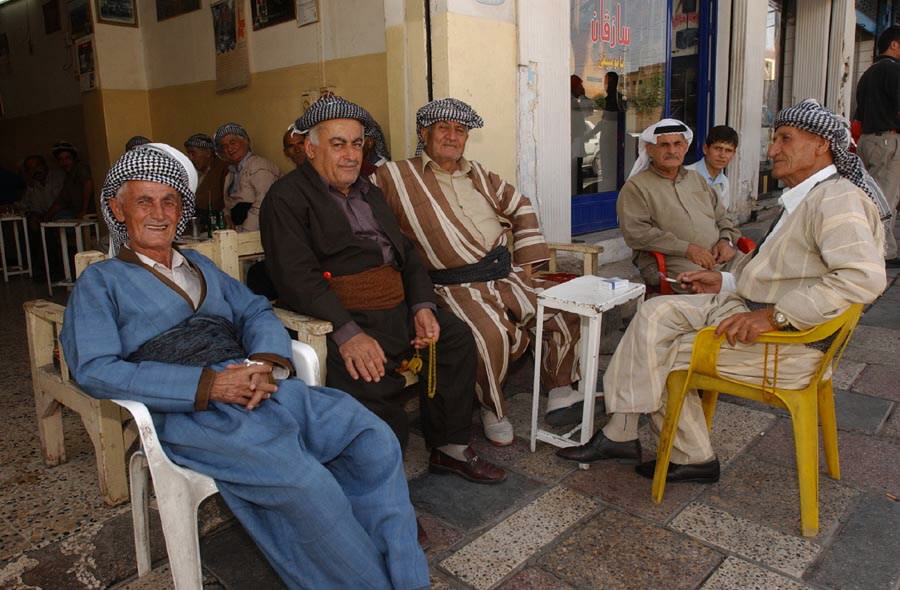
September 16, 2007
Four years ago, photographer Hal Yeager and I came home to Birmingham after nearly six weeks on assignment with an Alabama Army National Guard unit in northern Iraq.
Six weeks did not make us experts, but our stay left us with a lot of impressions, one of which was the relatively relaxed atmosphere and prosperity of Iraqi Kurdistan, which was a few hours by car to the north of our camp in Mosul.
In Washington, there is an ongoing debate about how much longer U.S. troops should remain in Iraq. In his congressional testimony last week, the top U.S. commander in Iraq, Gen. David Petraeus, said about 30,000 U.S. troops could possibly be withdrawn next summer.
If the rest of Iraq were like the Kurdish autonomous region, U.S. troop withdrawals would already be under way.
Kurdistan is not perfect. Far better informed people would scoff at such an assessment. Lethal bombs have gone off there, Kurdish-Arab tensions are simmering in the city of Kirkuk just outside the autonomous region, and Kurdish political rivalries have sometimes turned violent. But just as was the case four years ago, going from Iraq to Kurdistan is truly a night-and-day experience, and a pleasant one.

News staff/Hal YeagerKurdish men sit outside a shop in Dohuk, a city in the mountains of Iraqi Kurdistan.
For soldiers in the unit with which Yeager and I were embedded, the 877th Engineer Battalion, trips into the Kurdish region, even if they involved official business, were a way to lighten their mental and physical loads. Soldiers began feeling more at ease once they passed through the checkpoint separating Iraq's Nineveh province from the Kurdish-controlled sector.
"It was more like what we've got here than anywhere I saw over there," said Master Sgt. John Pemberton of Hamilton, who made about 40 trips to the Kurdish mountain city of Dohuk to buy tires, batteries, vehicle parts and other supplies for the battalion.
When Pemberton first started traveling to Dohuk, soldiers with the 101st Airborne Division, then commanded by Petraeus, were making what the military calls MWR (morale, welfare and recreation) trips up there from Mosul, staying in a large motel in the center of the city. Once they had settled in Mosul, 877th members started making Sunday shopping trips to Dohuk as well, and to the Kurdish region's capital city, Erbil.
"You just felt relaxed when you were up there in the Kurdish country, you know," Pemberton said.
"Once you got past their checkpoint up there, we could take off the body armor and everything. You just kept your weapon with you for security. You were just comfortable, a lot more comfortable there than you were in Mosul."
On one Sunday, Yeager and I went with two or three dozen 877th soldiers to Erbil. To get there, we had to pass through a part of Mosul that was a mosaic of wrecked vehicles and open storefronts, garbage piles, narrow alleyways, orange and white taxis, solid stone homes, partially built mosques, bare lots with grazing livestock and playing children and vendors selling soft drinks under flimsy woven canopies. When we got to the checkpoint in Kurdish country, we almost had to pry soft-drink selling youngsters off one of the humvees.
Upon entering Erbil, we found ourselves on tree-lined boulevards, alongside shopping arcades, sidewalk cafes and well-dressed young men and women who smiled and waved at the passing Americans. In a well-furnished restaurant, the soldiers sorted through bountiful servings of hummus, lamb, tabouli and other fare. Then they were off to shops around Erbil's circular 12th-century citadel, where they checked out carpets, cosmetics, candies and footwear and drew clusters of curious children. One popular draw was Spc. James Bankhead of Sulligent, appropriately nicknamed "Big" because of his size. Some of Big's colleagues even found their way to a downstairs bar.
Erbil and Dohuk were not what you would call shining cities on a hill, so to speak, but, again, they seemed markedly more prosperous and safe than cities across the checkpoints to the south. No doubt they and much of Iraqi Kurdistan were helped by the U.S.-led protection of a no-fly zone enforced after the 1991 Gulf War, but the Kurdish area has done enough on its own to draw investors, international airline flights and take on other attributes of a country in which people are comfortable enough to take risks.
"It's a place to . . . start if you want to get into Iraq," said Birmingham businessman Dave Nash, who visited the area while overseeing some Iraq reconstruction projects for the Defense Department from July 2003 to September 2004.
If, as some suggest, Iraq were to one day partition itself, the Kurds certainly seem ready to go it alone.
Tom Gordon is a reporter for The News.


